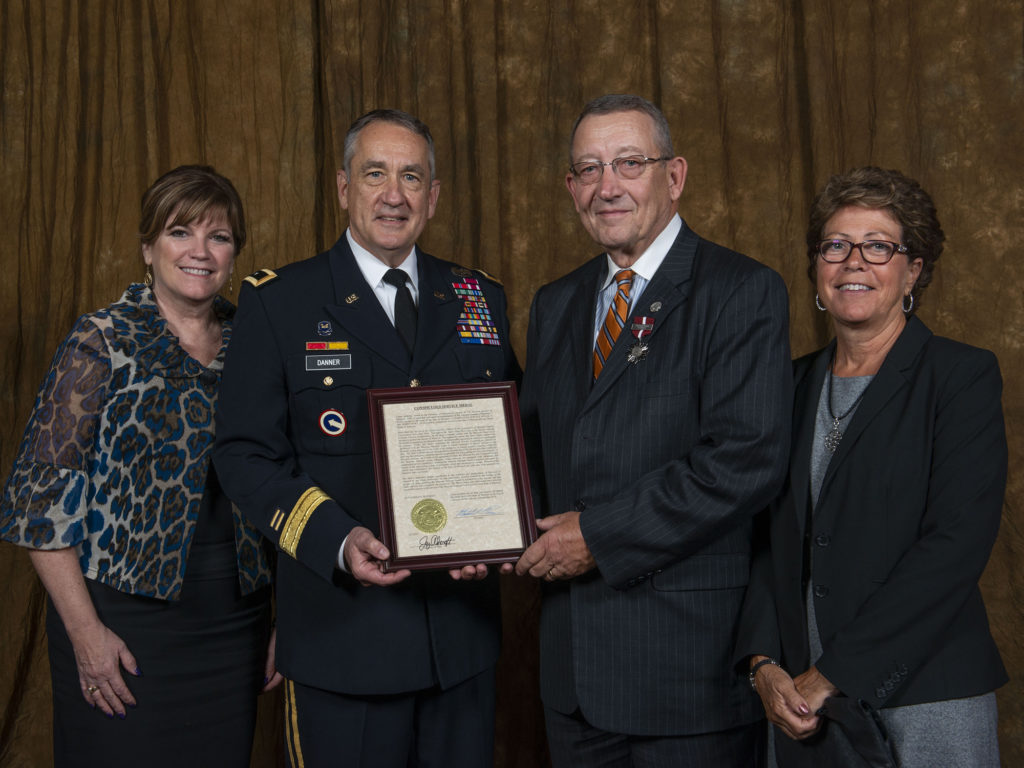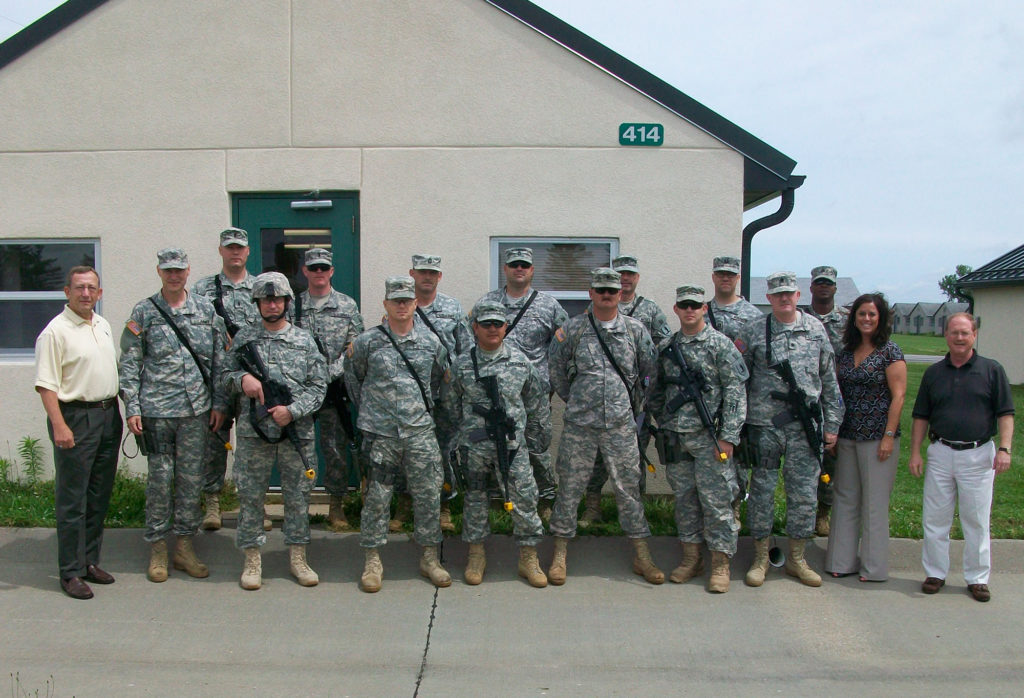
When exhausted electric cooperative crews settle in after long hours of mutual aid line restoration duty in Missouri, their comfort is a lasting tribute to co-op community commitment.
Conversations between a top co-op executive and the Missouri National Guard commander helped forge a partnership that’s improved citizen-soldier readiness and opened armories to house mutual aid crews following major outages.
“We have a lot of ice storms and, sometimes, tornadoes in Missouri,” said Barry Hart, CEO of the Association of Missouri Electric Cooperatives. “So, electric co-ops have a long history of providing mutual aid for each other to help restore electricity for co-op members as quickly and as safely as possible.”
The statewide association coordinates interstate mutual aid before, during and after major outage incidents. That effort includes housing arrangements for visiting crews, often in areas recovering from widespread infrastructure damage.
In 2009, the Bootheel region of southeastern Missouri was hit by the worst ice storm in the state’s history. With 75 percent of electric cooperative power lines in some areas down, outages were widespread. Homes, businesses and public agencies, including those used by first responders, also lost power.
“We needed hundreds and hundreds of linemen in the area,” Hart recalled.
Jay Nixon, then the state’s governor, appointed Missouri National Guard Adjutant Gen. Steve Danner to work with co-ops during restoration and recovery.
“Gen. Danner had been a Missouri Youth Tour delegate to Washington, D.C., in the 1970s,” said Hart. “He and his mom had a long history of working with co-ops, so we knew him well throughout his public career. He’s always looked for ways to work with us.”
Subsequent discussions between Danner and Hart pointed to the need for emergency generation equipment for the state’s Guard armories, but cost concerns prohibited a quick solution. So AMEC and its member cooperatives stepped in.
They drafted an agreement giving co-op personnel and contractors access to armory facilities during emergencies if those facilities are not needed by guard personnel.
“In return, we brought in the generators and hooked them up, so that the Guard would have power even when regular service was unavailable,” said Hart. “We have access to a network of secured sites we can use for lodging and limited staging when it’s needed most.”
The compact establishing the relationship has been in place for nearly a decade, and although it’s never been activated statewide, it has proven useful following several regional incidents.

At the Missouri statewide’s annual meeting last month, Danner presented Hart with the Missouri Conspicuous Service Medal. Hart, who retires from his AMEC position in January, is only the second civilian to receive the award, presented on behalf of the governor, to individuals who have provided distinguished service to the state.
“Mr. Hart’s dedication greatly contributed to the readiness and preparedness of Missouri to respond to future challenges,” Danner said during the presentation. “Mr. Hart’s direct support was invaluable in equipping the Missouri Guard, on innumerable occasions, to effectively accomplish its mission.”
The agreement between the Missouri National Guard and the state’s electric cooperatives is the only one of its type in the United States. Hart believes it’s a good model that could help ease lodging and logistics concerns in other states prone to blizzards, hurricanes or other widespread disasters.
“Our greatest strengths stem from developing and maintaining strong relationships with the people who work for local, regional and state agencies,” said Hart. He cited the cooperative principle of “concern for community” as the driving force for the agreement.
“That’s one of the things that co-ops do well. We love people and we always try to do the right thing,” said Hart. “I was humbled and honored by this award, especially since it was given to me by two men I respect the most, [current] Gov. Mike Parson and Adj. Gen. Steve Danner.”
Derrill Holly is a staff writer at NRECA.